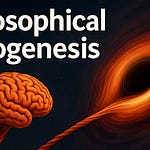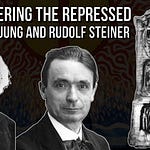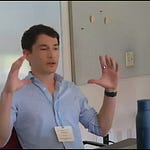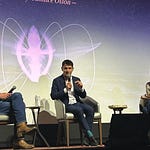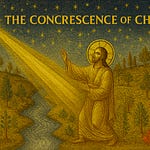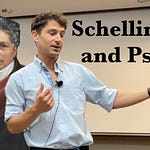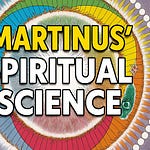Simon, Sam, and I followed up on our conversation a few weeks ago. We began with my reflection on the depth of insight expressed in Simon’s recent Voicecraft conversation that included Sean Kelly,
, and . This lead to a discussion of creativity, initiated by Sam, who wonders whether human artistic expression is merely uncovering something already present rather than inventing something new. He reflects on Walt Whitman’s idea that music already exists and is awakened through instruments. Here is a stanza from Whitman’s poem “Music”:All music is what awakes from you when you are reminded by the instruments,
It is not the violins and the cornets, it is not the oboe nor the beating drums,
It is nearer and farther than they.
Do you suppose that in these, touched by the fine players of the world, are the primary of the feelings that move you?
No; there is something else,
This something is in the soul and eludes description.
Do you know what music does to the soul?
Music, the most spiritual of sensuous enjoyments, gives it some faint sign of the harmony and measure that are of its essence.
I tied this idea to what J. R. R. Tolkien wrote in a letter to his friend C. S. Lewis: “If God is mythopoeic, man must become mythopathic.” There are many parallels between Tolkien's view of divine cosmogenesis and Whitehead’s concept of divinely inspired creativity, where God is imagined as akin to a conductor guiding (but not determining) an orchestra.
We moved on to explore the unconscious mind’s role in creativity, how human alignment with unconscious patterns brings clarity to one’s purpose, and the relationship between past, present, and future possibilities. We tried out metaphors of constraint, growth, and improvisation, weaving in references to Whitehead’s eternal objects and immanent forms of teleology.
I tried to articulate how constraints, both from past actualities and future lures, shape creativity. I contrasted mere randomness with meaningful improvisation and emphasized Whitehead’s notion of a divine “lure for feeling” that entices but does not determine the possibilities that we end up actualizing. Sam introduced the idea of mystic consciousness, asking whether those at the edges of human experience might access different realms of creativity or potential.
As the conversation progressed, we explored the role of trauma and suffering in evolution. Trauma can overly constrain creativity but, when processed or reinterpreted, may also deepen our sensitivity to and expression of deeper beauty. Simon elaborated on metaphors of roots, slime molds, and nutrient gathering to illustrate how revisiting the past can release hidden potential. I noted how life seems to push beyond mere survival, seeking intensified experience and flourishing in ways that challenge materialistic reductionism’s narrow focus on natural selection. Sam brings up the duality of health and disease, suggesting that illness can enhance life’s depth. Suffering isn’t something we necessarily seek out, but it nonetheless intensifies experience and might ultimately enhance beauty.
Toward the end, we circled back to philosophical questions about justice, creativity, and aesthetics. I recommended the final chapters of Whitehead’s Adventures of Ideas which emphasize how human creativity participates in the universe’s broader artistic impulse. The discussion closed with Simon asking what generative AI means for creativity, suggesting it as a topic for future conversation.
Watch the video of this conversation:





